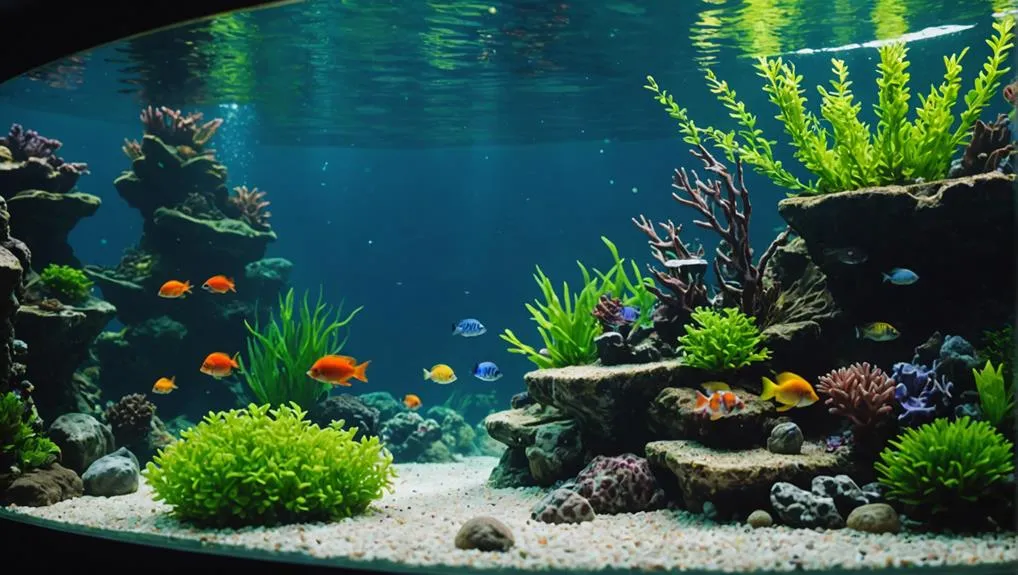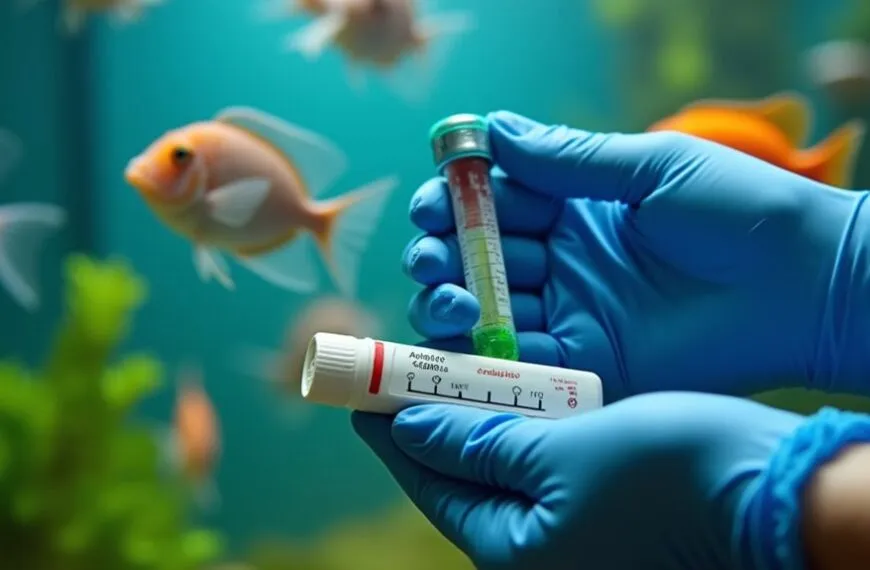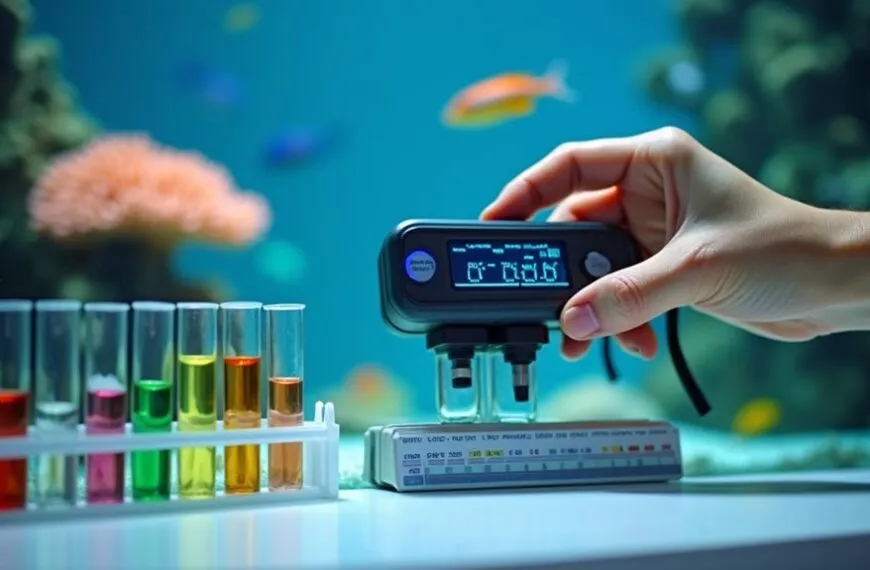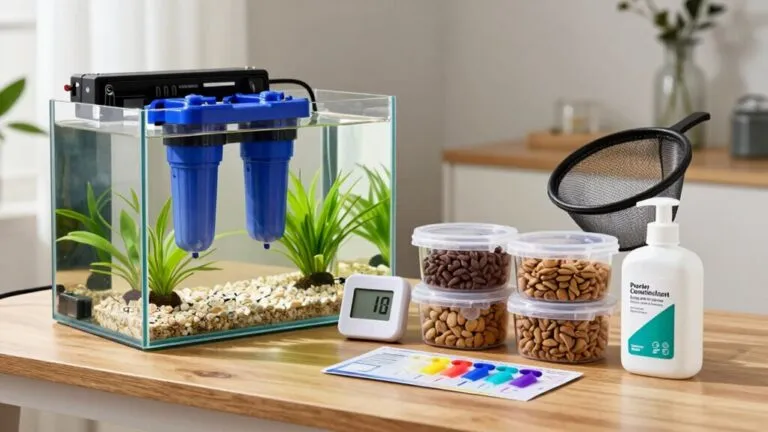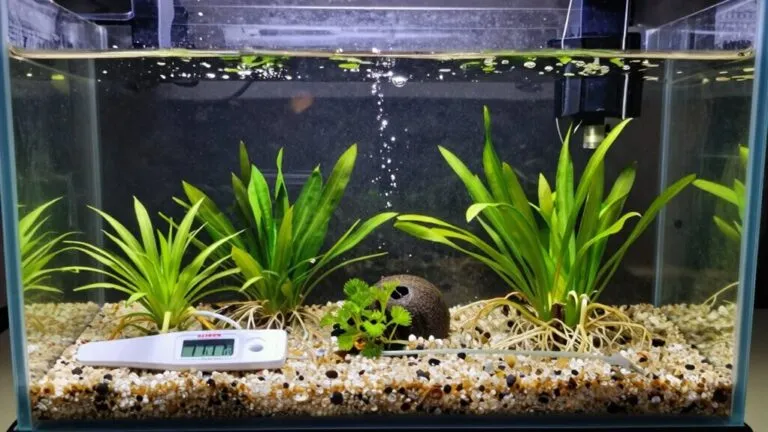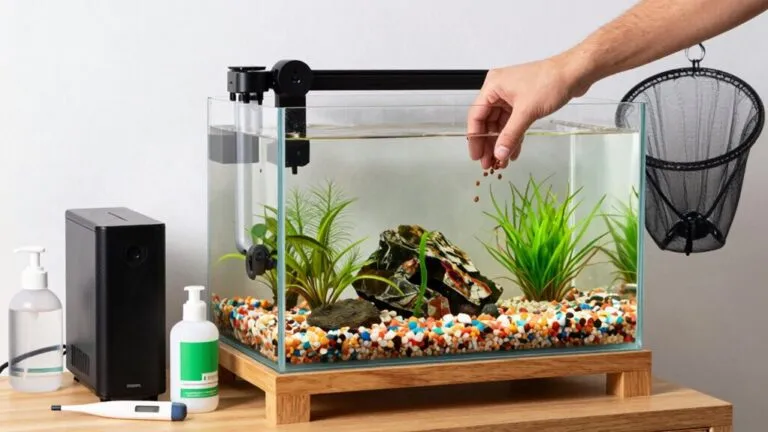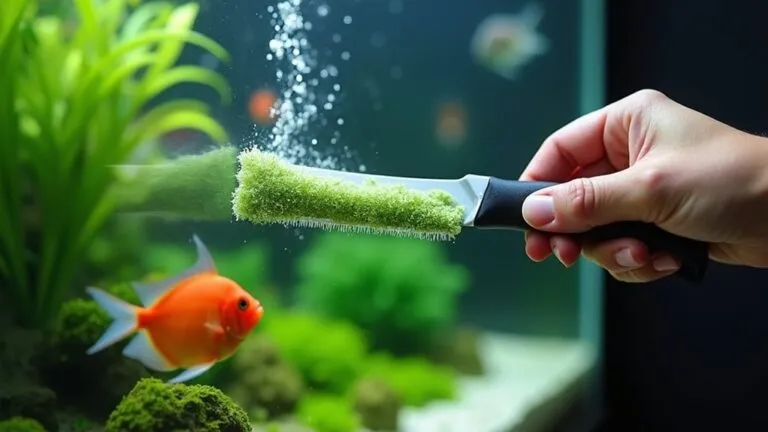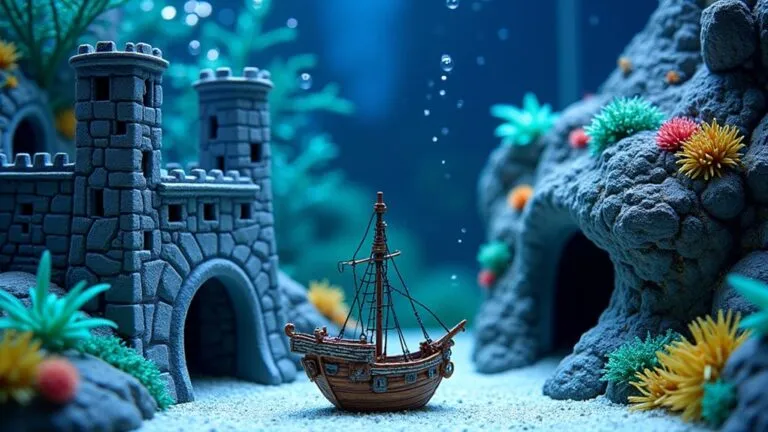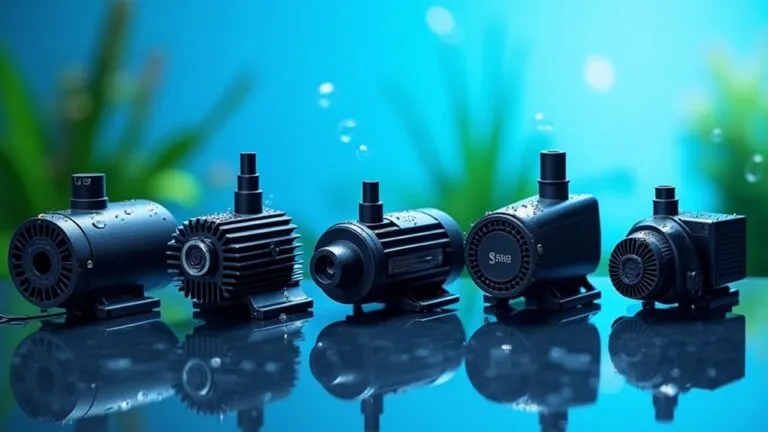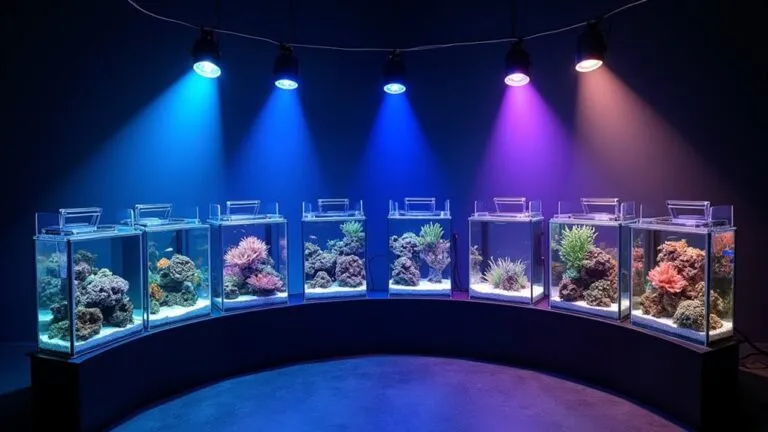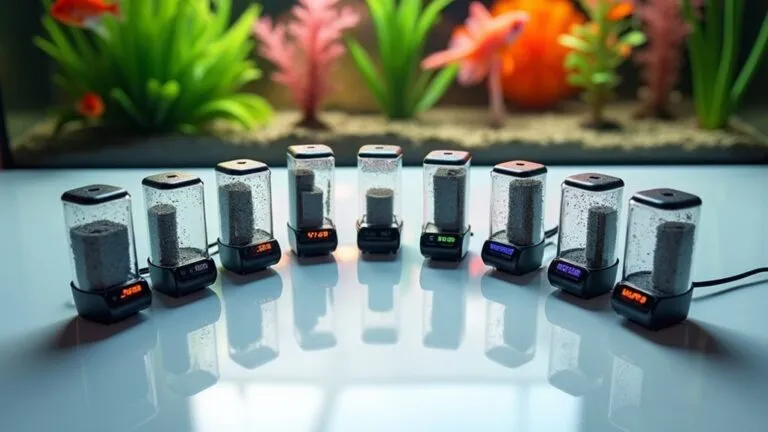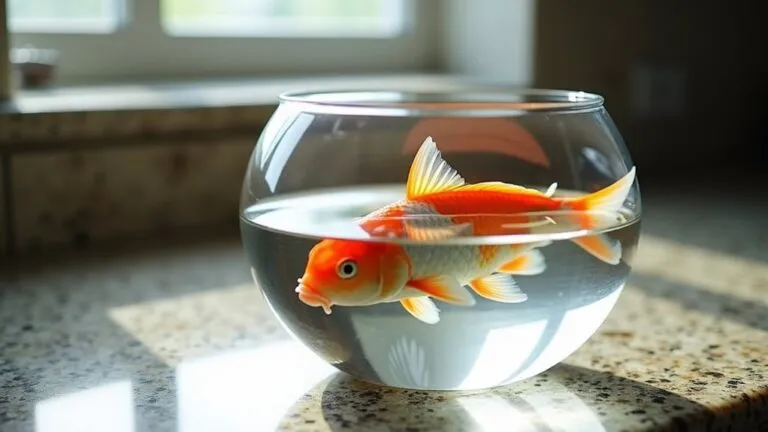To keep your aquarium water clean and clear, start with regular maintenance. Change 10-15% of the water weekly, and don't forget to vacuum the gravel—it's like giving your fish a clean bedroom! Be mindful not to overfeed; uneaten food just adds to the mess. Make sure to maintain your filtration system, using activated carbon to zap toxins away. Monitor light exposure to control pesky algae, and consider adding some algae-eating buddies like snails. By keeping an eye on everything, you'll create a healthy environment for your aquatic pals. Stick around, and you'll find more helpful tips!
Contents
Identify Cloudy Water Causes
Cloudy aquarium water can be a frustrating issue for any fish keeper, and identifying its causes is essential for restoring clarity. You might notice this cloudy water in a new freshwater aquarium, and it often happens due to a few common culprits.
One big reason is overfeeding your fish. When you toss in too much food, it can lead to excess organic waste that clouds the water.
Another factor is those pesky bacterial blooms. They're especially prone to happen in new tanks, but don't worry—they usually clear up on their own in a week or two if you leave things be.
Also, if you've recently added unwashed gravel, that dust can stir things up and contribute to the murkiness.
And let's not forget about the water changes. Introducing new minerals or organic materials from adding new fish can lead to cloudy conditions too.
Pay attention to when the cloudiness occurs; it can help you pinpoint the source. By figuring out what's causing the issue, you're already one step closer to giving your fish a clearer and healthier home!
Establish Regular Maintenance Routines
To keep your aquarium thriving, establishing regular maintenance routines is crucial. First off, make routine water changes a part of your weekly schedule. Changing 10-15% of the water helps maintain optimal water quality and reduces the buildup of harmful substances.
Don't forget to clean the tank glass, too! This prevents algae growth and keeps everything crystal clear, making it easier for you to enjoy your fish while keeping them stress-free.
Next, give your gravel some love by vacuuming the substrate regularly. This removes debris and waste, creating a healthier environment for your aquatic friends.
Speaking of health, make sure to clean and maintain filters consistently; this ensures that your filtration system works efficiently, managing toxins effectively.
Lastly, after feeding time, be vigilant and remove any excess food right away. Leftover food can decay and cloud up the water faster than you can say "fishy business."
Optimize Filtration Systems
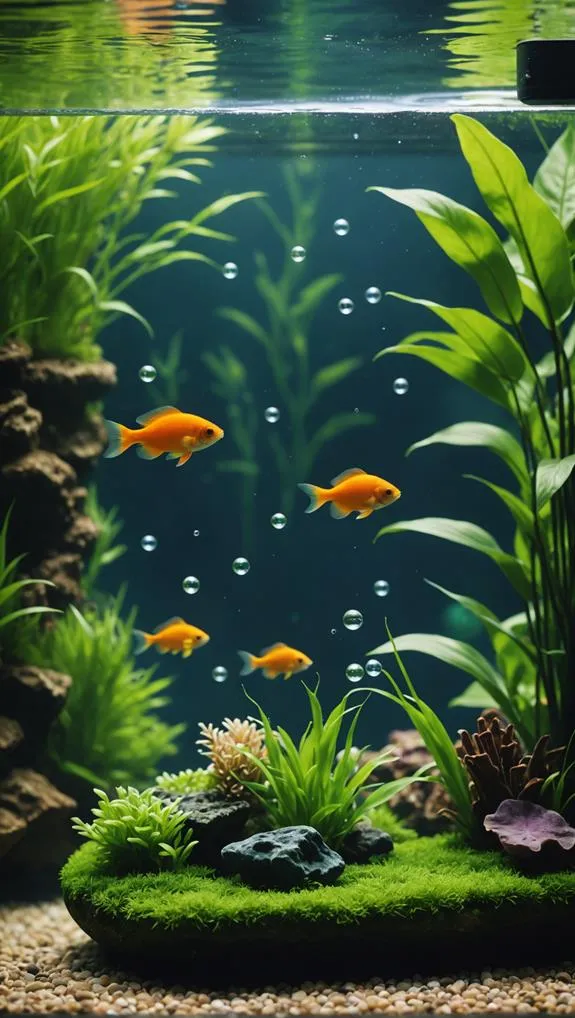
Maintaining a clean aquarium goes hand in hand with optimizing your filtration system. A good filtration system is crucial; it should combine mechanical, biological, and chemical processes to keep your tank sparkling.
This way, you'll effectively remove debris, manage toxins, and maintain balanced water quality.
Don't forget to regularly clean and maintain your filter! This simple step goes a long way in reducing cloudiness and improving water clarity.
If you have a larger aquarium, consider using an external filter with a higher capacity. These can sustain effective filtration over time, keeping your aquatic friends happy.
One secret ingredient you might want to include is activated carbon. This little wonder works wonders by eliminating toxins and impurities, enhancing the health of your aquarium ecosystem.
Plus, be sure to monitor and replace filter media as needed, following the manufacturer guidelines. This will prevent clogging and ensure maximum water flow through your system.
Control Algae Growth Effectively
Controlling algae growth is essential for keeping your aquarium healthy and visually appealing. Nobody wants a fish tank that looks like a green soup, right?
Start by regularly monitoring your water chemistry, especially nitrate and phosphate levels. These can lead to unwanted algae blooms if they're out of balance.
Next, limit light exposure. Keep your aquarium lighting between 8 to 10 hours a day; too much light can fuel algae growth faster than a racecar!
Routine maintenance is also key. Vacuum your substrate and clean surfaces with scrapers or magnets to remove algae and any organic debris.
Consider introducing live plants into your tank. They're not just pretty—they compete with algae for nutrients, promoting a balanced ecosystem.
Lastly, don't forget to add some algae-eating friends! Snails, shrimp, and certain fish like Siamese algae eaters can help keep those pesky algae populations in check.
Implement Long-term Solutions
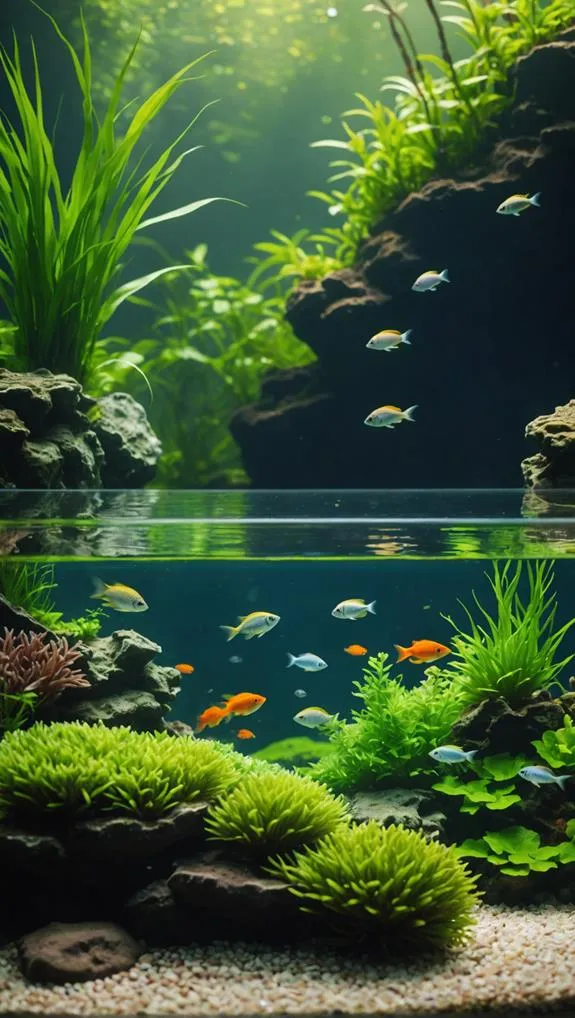
While managing algae growth is vital for a healthy aquarium, addressing long-term solutions can significantly enhance your tank's overall environment. Start by installing a UV sterilizer. This nifty device helps eliminate harmful microorganisms, reducing the risk of algae blooms and improving water clarity over time.
Next, consider adding surface skimmers to remove organic waste actively. This prevents debris from piling up on the water surface, keeping your aquarium looking pristine.
Incorporating live plants is another fantastic way to boost your tank's health. They improve natural filtration, add oxygen, and create a balanced ecosystem that supports overall water quality. Plus, who doesn't love the vibrant greens?
Don't forget about beneficial bacteria supplements! These little heroes help stabilize the nitrogen cycle, maintaining consistent water quality and reducing the likelihood of ammonia spikes.
Regularly monitoring water parameters is crucial too. Keeping an eye on conditions prevents the fluctuations that can lead to cloudiness and instability.
Frequently Asked Questions
How Do I Keep My Aquarium Water Perfect?
To keep your aquarium water perfect, regularly check water temperature and maintain a reliable filtration system. Use water additives to support beneficial bacteria, ensuring a healthy environment for your aquatic friends and enhancing their well-being.
What Is the Best Thing to Keep a Fish Tank Clean?
Imagine your fish tank as a thriving kingdom. You'll maintain harmony through diligent filter maintenance, regular substrate cleaning, and vigilant algae control. These actions nurture your aquatic inhabitants, ensuring their realm remains clean and vibrant.
How Do I Make My Fish Tank Water More Clear?
To make your fish tank water clearer, focus on filter types that suit your tank, practice algae control through regular maintenance, and prioritize water testing to ensure optimal conditions for your aquatic friends' health.
How Do I Keep My Tank Water Healthy?
Think of your tank as a thriving community. To keep it healthy, prioritize water quality through regular maintenance, utilize efficient filtration systems, and ensure consistent cleaning habits. Your fish will flourish in this harmonious environment.
Final Thoughts
Keeping your aquarium water clean doesn't have to feel like a chore; think of it as a fun little dance with your fish! By understanding the causes of cloudy water, sticking to a maintenance routine, and keeping an eye on algae, you'll create a healthy home for your aquatic friends. Remember, a little effort today means a sparkling underwater world tomorrow. So roll up your sleeves and dive in—your fish are counting on you!

